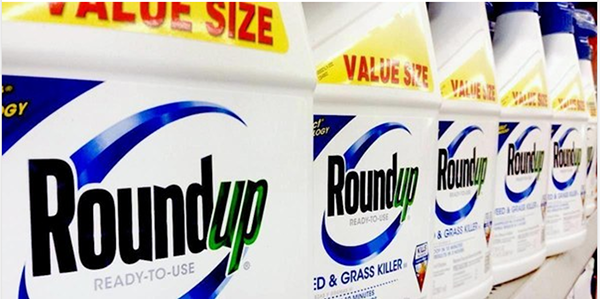Cancer Expert: EU Studies on Glyphosate Are ‘Scientifically Flawed’
ORGANIC, GMO, GENETIC ENGINEERING, 5 Jun 2017
Lorraine Chow | EcoWatch – TRANSCEND Media Service
2 Jun 2017 – Dr. Christopher Portier, a toxicologist and former director of the U.S. National Center for Environmental Health, has criticized the conclusions of European Union agencies which found that glyphosate—the active ingredient in Monsanto‘s widely used weedkiller Roundup—is not carcinogenic to humans.
In a May 28 letter to European Commission president Jean-Claude Juncker, Portier claims that the European Food Safety Authority (EFSA) and the European Chemicals Agency (ECHA) failed to include in their assessments eight instances of “significant increases in tumor response” in rodents that were tested for cancer after exposure to the herbicide.
“This suggests that the evaluations applied to the glyphosate data are scientifically flawed, and any decisions derived from these evaluations will fail to protect public health,” the cancer expert wrote.
Portier noted that the International Agency for Research on Cancer Monographs Program classified glyphosate as “probably carcinogenic to humans.”
He also expressed concern that the EFSA inadequately evaluated glyphosate’s effects on reproductive toxicity and endocrine disruption.
“Since the industry-supported scientific evidence is not available to external scientists, I am unable to evaluate these data and determine if there are positive findings that escaped detection,” he wrote. “I encourage you to release these data for external analysis and review as well.”
Two weeks ago, the European Commission announced it was proposing a 10-year extension to its approval of glyphosate, citing the ECHA study.
Portier requests that both EFSA and ECHA review the evidence he submitted. He urges Juncker to refrain from “making any decisions on glyphosate until these positive findings are included.”
Anca Paduraru, a spokesperson for the Juncker, told Euractiv that the commission will ask the agencies to respond to the letter.
“Given that the majority of the problems raised by the letter are related to the scientific evaluation of glyphosate, the commission will ask EFSA and ECHA to respond,” Paduraru said, adding that the commission currently has no reason to doubt the evaluation of the EU agencies.
____________________________________________
 Lorraine Chow is a reporter for EcoWatch.
Lorraine Chow is a reporter for EcoWatch.
DISCLAIMER: The statements, views and opinions expressed in pieces republished here are solely those of the authors and do not necessarily represent those of TMS. In accordance with title 17 U.S.C. section 107, this material is distributed without profit to those who have expressed a prior interest in receiving the included information for research and educational purposes. TMS has no affiliation whatsoever with the originator of this article nor is TMS endorsed or sponsored by the originator. “GO TO ORIGINAL” links are provided as a convenience to our readers and allow for verification of authenticity. However, as originating pages are often updated by their originating host sites, the versions posted may not match the versions our readers view when clicking the “GO TO ORIGINAL” links. This site contains copyrighted material the use of which has not always been specifically authorized by the copyright owner. We are making such material available in our efforts to advance understanding of environmental, political, human rights, economic, democracy, scientific, and social justice issues, etc. We believe this constitutes a ‘fair use’ of any such copyrighted material as provided for in section 107 of the US Copyright Law. In accordance with Title 17 U.S.C. Section 107, the material on this site is distributed without profit to those who have expressed a prior interest in receiving the included information for research and educational purposes. For more information go to: http://www.law.cornell.edu/uscode/17/107.shtml. If you wish to use copyrighted material from this site for purposes of your own that go beyond ‘fair use’, you must obtain permission from the copyright owner.
Read more
Click here to go to the current weekly digest or pick another article:
ORGANIC, GMO, GENETIC ENGINEERING:
